Henry Martinez Arocha
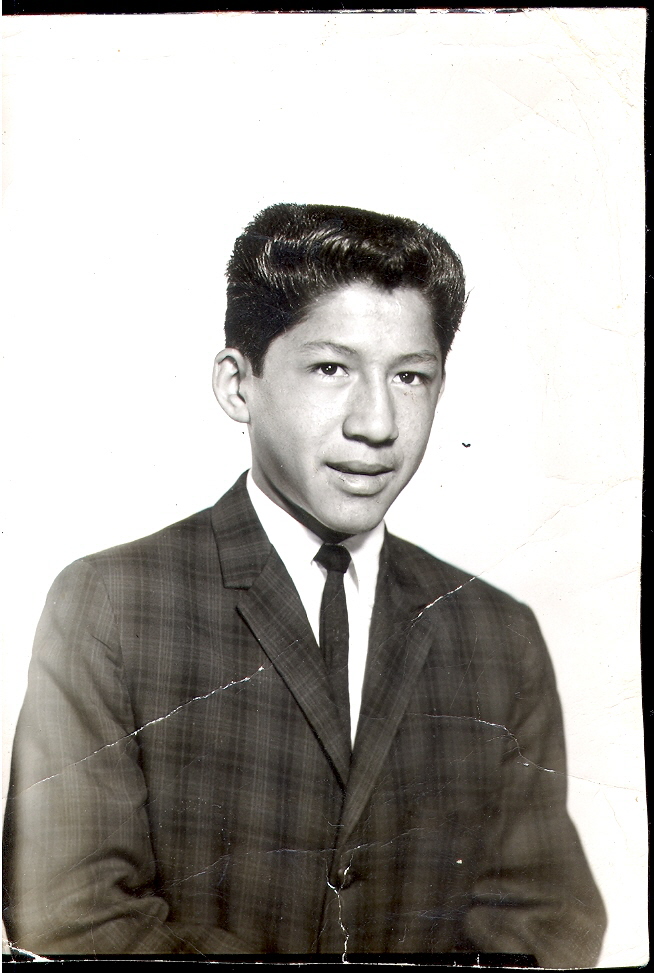

What was your childhood like and what were your childhood dreams?
My childhood like, well we were never hurting for anything, my parents always worked day and night to support us.
So we always had everything that we needed. The only dreams that I had were flashbacks of the war, things I've seen over
there that you would never even think about seeing over here. And its like a, the brain picks up on anything and hardly
ever releases anything, so no matter how much later it has been, I still have those reoccurring nightmares about the war.
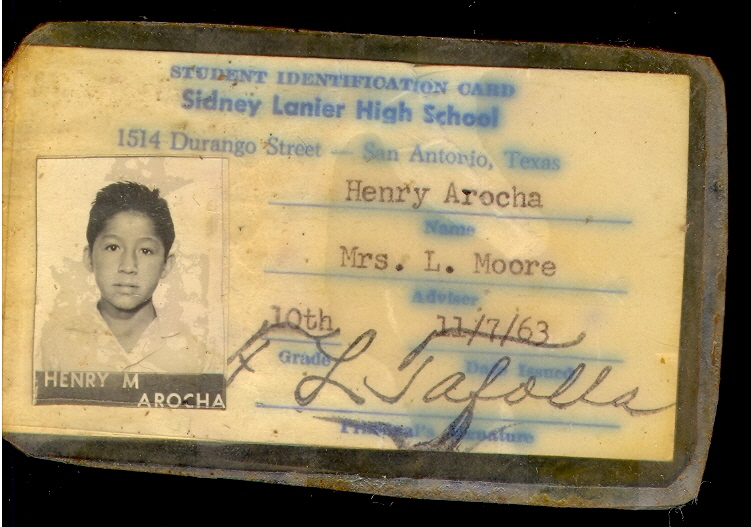
What did you know about Vietnam and the war before being drafted?
I didn't know anything, and even when I got over there I didn't understand why I was out there. I mean I had nothing
against these people; it wasn't until I had got in the battle, in my first fire fight, and we had our first real ambush that
some of our soldiers were killed. And thatís when the anger inside of me grew to start hating the Vietnamese people.
Where were you when you heard about being drafted to Vietnam?
I I was working at Kelly Air Force Base and when I got home, there was a letter waiting for me from the President
of the United States saying greetings, you are hereby requested for induction into the arm services of America. So... there
I go.
What did you think about it?
I wasn't to happy about it. Things started going through my mind like I was going to get killed, I wasn't going to come
back, all that good stuff.
How did the draft affect your family, friends, and most of all you?
Well first of all it was very hard for me to accept the fact that I was going to war. Not knowing what the future brings up you know.
But if it was hard for me going over there, I can only imagine the pain, in the way it hurt my parents, not knowing if one of these days, there
was going to be a knock on their door, saying I had been killed or wounded.
Where you ever wounded?
No, I was lucky enough to dodge the bullets.
What were your feelings towards the war once you had arrived?
I was scared, I was very scared. I was in another country, another time. There were no stores, no convenient stores,
no movie theatres, no nothing over there in Vietnam, as to where over hear, we had everything right around the corner.
Do you remember the last words your loved ones told you before you left?
To be careful. My mom and dad said to be careful and may God bless you.
While in Vietnam, did you communicate with anyone and if so, who?
Only by mail. I communicated with my parents and my wife at the time. I would get a letter like every three days and
I would write back like every three days. Then I met up with some people there who had went to school with me, that I had
never met in real life until we started talking. We noticed we were in the same area and I had never even met him, so the
first time we met was over there.
Did you see alot of people over there that you had recognized?
No no just a few. Maybe like about three.
Did alot of your friends go to Vietnam?
Yes lot of them went and lot of them were killed. They didn't make it back, they made the ultimate
sacrifice over there.
Did you make alot of friends over there?
Yea just about everyone was your friend because you had to depend on them to watch your back, and at the same token,
they had to depend on you to watch their back. It was like a brotherhood over there, especially if you were in infantry it
was like a brotherhood over there.
How old were you when you went over there?
(Coughs) I was 20 yrs. old... 20 yrs. old.
Did you lose any friends, if so can you give names?
Yea, well there was one particular gentleman, I could never pronounce his name until the day he died on the 4th of July
, 1968. His name was John Charles Javorchik. But I could not pronounce that mans name till the day he died. The day he
died, I, I, I, it just couldn't get out of my mind. I could still see him get hit, and die right in front of us. He had
been carried out in a gurdy because the trees, the jungle was so thick, they had to bring a helicopter, it hovered above us
and they just dropped the gurdy and just picked him up and took him, but he was already dead, he was already dieing, suffocating,
(shakes head) and had already went into shock because he started turning blue.
Were ya'll close friends?
Yea we were close friends, would you believe that on that Fourth of July, about ten days before he was killed, he had
just turned 21, just turned 21, and now I don't forget his name. I have it written down in one of my notebooks so wont forget
his name; I will never forget his name. About a couple of years after the war, I kept having recurring nightmares about him
getting killed, and I told my wife, I think this guy John wants me to get hold of his family, write them a letter, and tell
them I was with him when was killed. But I knew he was from Illinois, so that was about it.
So you never tried contacting?
No I never tried to contact them.
Did you ever feel guilty knowing others have died and you had survived?
No, I just figured it wasn't my time because heaven knows how man bullets I heard fly right by my head, on my ears,
and like they say if your number is not up, itís not up. When I came back I thanked the Lord for not calling my number over
there, and after that, I changed my whole attitude, my outlook on life.
And how is that?
First of all, it taught me that life is not a game, it's not bang bang you get up and run again, it's bang bang your
dead, and thatís all there is to it. So, by that, you know on my way back from Vietnam, I spoke straight to the Lord and
thanked him for not calling my number and I swore to him that I would quit drinking and smoking. July 11, 1969, on the aircraft
on my way back to the world is when I made that promise, and I still haven't drank or smoked.
And you kept it ever since?
I kept it ever since, and I don't miss it a bit. As a matter of fact I saved alot of money not spending it on that.
Describe basic training, what were you trained to do?
Yea, they called it physical, it was no learning, they were just getting you in shape. You had to eat and they would say,
"C'mon put it in your mouth, you can swallow it later, lets go lets go." You couldn't eat comfortable, you would eat dirty,
dragging it from the ground, or doing push ups, or physical exercise, your body would hurt. It wasnít until AIT which was
Advanced Individual Training that you start learning how to use a weapon, how to bring a weapon down, how to take care of it,
treat it like your wife, (rolls eyes) don't let it get wet, don't let it get jammed, nothing like that. It was just the dirt
on them, it was was part of you, you never lost track of that weapon.
What did you eat, and where did you sleep?
Ehhhhhh, we slept on the ground, and sometimes you know, it was so dark in Vietnam that you couldn't even see your hand
in front of you (puts hand in front of face and waves) thatís how dark it was. Sometimes you could feel the rats fighting over
your feet (sort of chuckles) and were not talking about little rats, were talking about big, humongous rats (puts up hands to
show how big in size the rats were) and you could feel them fighting over your feet and ahhh...(shakes foot) you just shoo them
away. But you couldn't make noise at night because the Vietnamese would hear everything. We were at the feet of the ground,
the jungle, and the only thing, about two feet was just rain, and it rained constantly, all the time it rained and we would have
to sleep in the puddles and there were no dry spots or nothing, there were nothing but puddles. The food was gross!
(Makes a sour face). It was packed in cans, powdered eggs, with big ol' green lima beans... yuck! It had a jelly preservative
on top, but it was ugly! But there was nothing else, if you don't eat that, you don't eat. The only other thing was a candy bar,
a little Nestle Hershey Crunch, or Peanut Butter, or a cookie.
Was that your favorite part of the dinner?
(Laughs) yea that was my favorite part of my dinner. The only thing that was passable was called beef and weenies.
Meat and beans, it was the only thing we all went first for, and than I had my mom send me hot sauce, to kill the flavor.
And, uh, he had some spaghetti, you would break it up and put in hot water, than put the beef and weenies in there, get some
hot sauces, mix it all in there. But you couldn't carry three meals a day, you would carry it that meal for 3 days, we're talking
about 6 meals at the most, you would probably have like, a meal and a half per day.
How long were you in Vietnam?
A year, you had to do your trip of a year.
Did you celebrate any birthdays over there?
Yea one, just mine, it was, I believe the 20th. It was no big deal, it was no big deal because you didn't know what the day was,
and you didn't know what the date was. You didn't even know what the day was, Monday, Tuesday, or if it was the 2nd, 3rd, or 4th, all
you knew was, well they gave you a little calendar, a notebook that had 365 the number and went down to 1 that way when you get to 1, you
know that it had been a year. You would hear, is it Monday, and I would reply, hell I don't know I have no idea; one day was just like
the other one. Is it the 13th or the 14th (laughs) hey thatís another good question man youíre just full of a bunch of good questions today.
You would just lose track of time over. You would say how much time you have left? (Looks at hand) 32 days, oh right! The last 2 to 5 days...
they dragged on and on, they dragged on forever. And you would hear stories of people getting killed the last couple of days they were there.
You would keep hearing all those stories and oh... my, all I need is for one of those nut cases to shoot a rock and hit me.
Who did you think of most while you were away and why?
My wife I guess, at that time because we had just got married three months before I had gotten drafted, so were newly weds (rolls eyes and shakes head).
I really didn't have time to think of anyone over there because it was a matter of survival. And I didn't have time to let my mind wonder off.
Once you got back from Vietnam, was it difficult getting used to home knowing you had away for so long?
Yea because in my situation I was infantry, and at night especially, everything was real quiet and everyone would whisper, you had no lights on, if
you needed a light you would take out a flashlight and cover it up in your hands (shows example with his hands) nobody would talk at night, nobody
would smoke at night. Than when I came back here... BEEP! BEEP! BEEP! HONK! HONK! HONK! Everyone was yelling and I came back to California,
and it was at 3 in the morning when I got here and California, it never sleeps. Man and we were all there looking like a bunch of owls. Hearing
all the people...beep beep honk honk... so no one could fall asleep and when i left Vietnam, it was Wednesday at 8:30, at night but yet, when
I got here to uh... Oakland it was Wednesday, 3:30 in the morning. I said no no wait a minute, wait, what do you mean I left over there Wednesday
at 8:30 at night but your telling me right now its Wednesday 3:30 in the morning how can that be. Cause we when we were over there we left on a
Tuesday and got there on a thrus. i kept thinking what happened to Wednesday It turned out when you crossed back into national day time line we
lost a day so when we came back we gained a day back, so we where here Wednesday morning. I was just waiting to get home they told us donít argue
with no one donít pay attention to anyone because your time can be delayed...shoot not my time was going to be delayed. I kept quiet so when they
called my name I went over there, got my new uniform, turned everything in, and they gave me enough money to pay for my ticket back to Texas...
I was on my way.
What was the first thing words your family told you or who were the first people you saw when you got home?
My mom and my wife, they were crying and my mom she thanked the Lord for bring me back and my dad, my dad just hugged me. I had one of
uncles there, one of my aunts and two of my cousins, and sisters there. There were no Parades like they have now, the whole neighborhood comes
out, if it weren't for my family than no body would have been there.
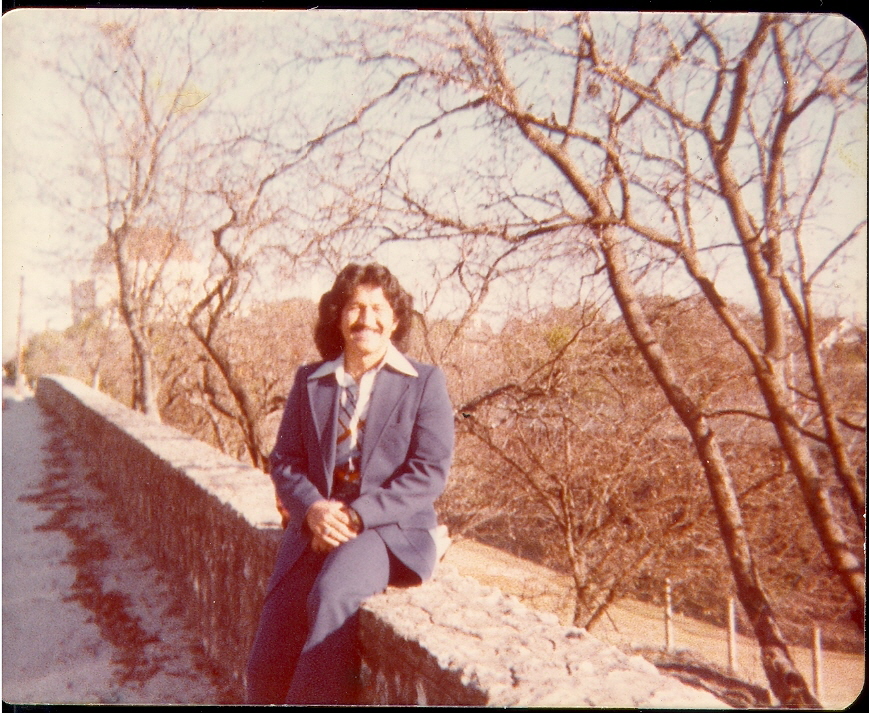
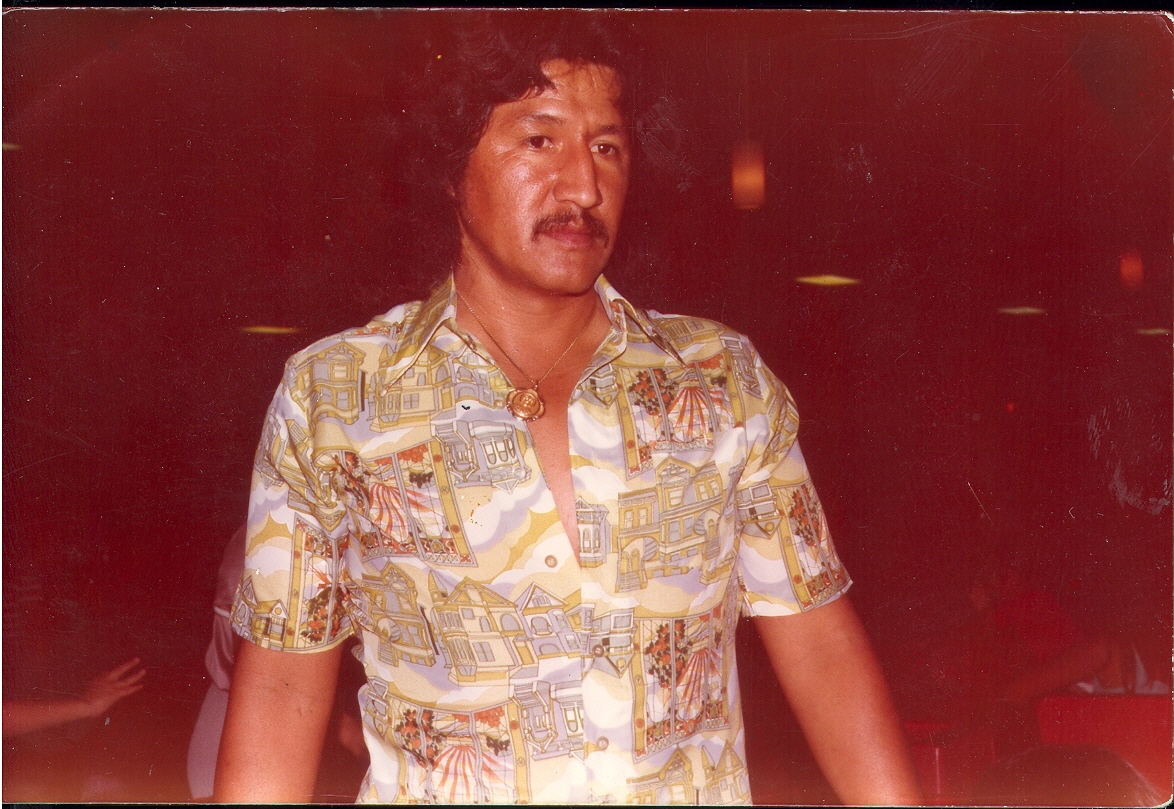
What can you tell me about the
GI Bill?
It was a good deal, it was a good deal, lot of people took advantage of it, but it was a life within itself, it was a good deal.
But like how they sent me, all these illnesses didn't start popping out until about 25-35 years later and the government, the government
denies everything but it was the GI for school that paid for colleges but when it came to medical health, man they tried to discourage us
as much as possible. I had a hard time getting declared 100% disabled.
Why do you think it was so hard, why do you feel they denied the medical problems so much?
Because their was lot of money involved. This happens in all of the wars not just Vietnam. I happened before in WWI, WWII, Korean War,
the Gulf War, everyone barely started showing the effects of cancer or other illnesses, and the government
Still denies it. It wasn't until 10 yrs. later that they decide, well okay we'll start looking at your wait till you start complaining, they
don't inform you that this is what might happen, they wait for you to start feeling sick, or when you start showing symptoms.
What medical illness did you get from Vietnam?
Well I have
Agent Orange, Diabetes, I take 20 pills per day and 3 shots, I have Hepatitis C, I have Neuropathy, and the last thing that
I have, that I just found out is, Sclerosis to the liver, which all of these illnesses will eventually shorten my life. Nothing I can do about
it just thank the Lord everyday for waking up, and opening your eyes, you just got to take what you can.
What is
Neuropathy?
Neuropathy affects your outer extremities. Like from your elbows down, to your knees down, they told me I will eventually lose feeling
in my feet and on my hands. I can already feel all the tingling in my fingertips, said it might be Olsers. I take six pills a day for medication
for my feet and my finger tips, it's supposed to help me and yea it helps me but still from a 1 to 10, Iíd say my pain is at about an 8.
What are your most vivid memories of the war?
Hmmm...there was this young man, we were set up in ambush, we were dug in and in camaflouge. There was a report to us that there were men,
coming our way. So we dug in, camaflouge ourselves, and sure enough, here they come. You can here them coming down the trail, talking, "Mememememe,"
or rambling off, whatever said. Everyone kept quiet, everyone kept quiet, they said, don't fire till the gun man fires, and I was the gun, I had
the machine gun. It was an M60 and so I had to wait, not thinking about the other mans life because it was planted into my head, it's either them or
you. They wouldn't hesitate to kill you so don't you hesitate to kill them. Here they come walking into my file so I opened up... tat tat tat tat (continues
to make the noise of a machine gun), with the
M60 Machine gun, there were like five or six of them and all of them were coming, but they were all killed.
THe one that I hit, died right there in front of us, and the others ones ran. Than they dropped, it's called a
loach helicopter, a light observation helicopter and it was flying from tree top and than they contacted the other guys and they killed them. But the young man that died there in front of us, we stayed there,
unil he blew up like a dog, I mean maggots, rats, lizards, flies, I mean every animal around there ate him. We stayed there three days through the stinch and every
thing, and after the three days, all that was left was a uniform ad his bones. I told my wife, I wish I knew who his parents were, and tell them "You son
is not a prisoner of the United States, he's not a POW, he's dead, he's gone, and he's never going to come back, just so that way they could have some kind of
closure instead of thinking there is still hope that he is going to come back. Thats still stuck in my mind you know, like I said, whatever the brain picks up,
it will always be with me.
Have you ever gone to visit the
Memorial Wall?
Yea, when it came to Central Memorial and by that time, I had already visited a place in Downtown, at Santa Rosa Hospital, all they had was names on the wall.
This time when they came to Central Memorial Cementary, they had computers already there. They could tell you, you could tell them the name you were looking for
his name, what ever information you had. They could pinpoint it, trace it and tell you what block he was on, and sure enought they asked me what was his name, I said
John C. Javorchik, he was from Illinois, he died sometime in '89 or '88 I told them and he had just turn 21 ten days before that. On the month later sure enough, I
came back and they told me what block and line he was at. I asked, "Excuse me, on what day did he expire?" I was surprised to hear that is was on the Fourth of July.
Ahhh, man, it hit me hard. I broke down crying right there in front of my wife, just kept saying, "I told you John, you stupid, you stupid idiot I told you to stay down,
I told you to stay down you stupid, now look what happened to you!" My wife was telling me, "Babe, calm down babe." (Tilts head), I finally came down, and thanked him for
making the sacrifice so that way we can be out here. Than I looked for some other guys, they weren't killed, but they went to school with me. I went and got a little paper,
and etched out there names, I have them here, I still have them here...(Takes a few minutes to get pictures together). In basic training, we would march with slacks like that
"Bababbabab..." (Gets up and pretends he's marching while continuing to sing a song), and who would of known they would've chose me to carry the Texas flag. (Smiles proudly).

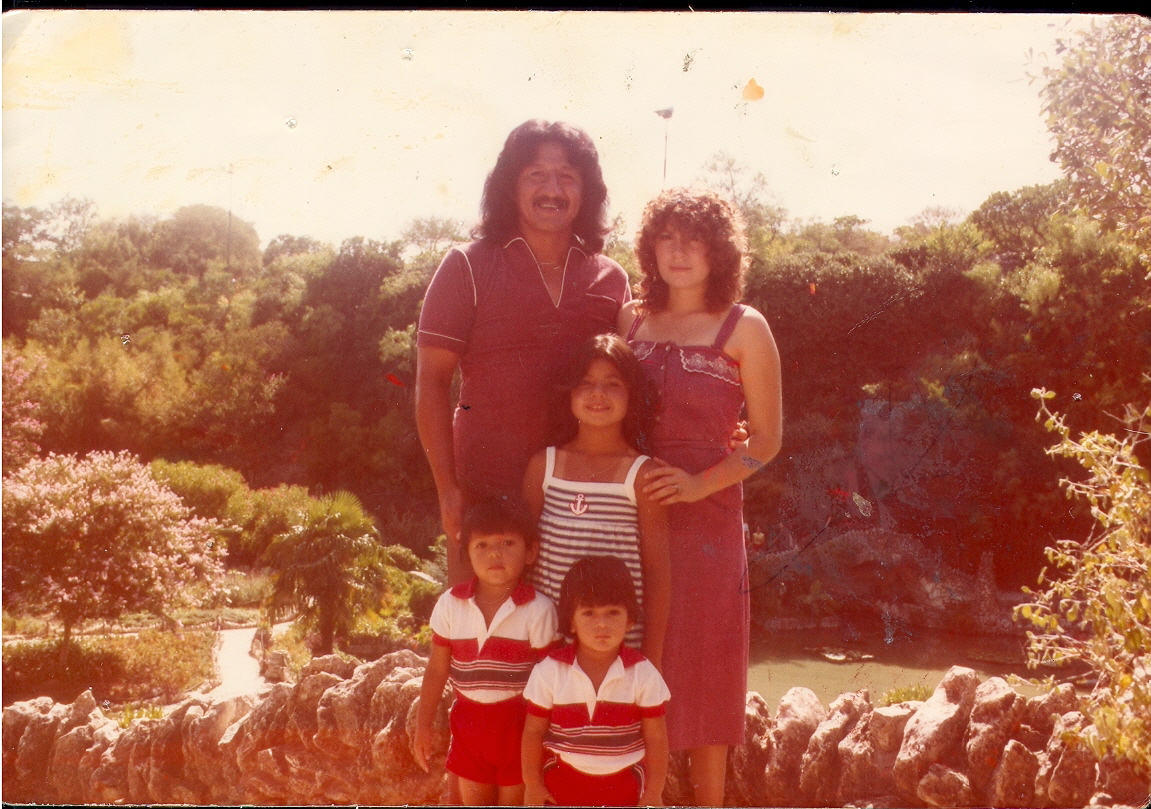
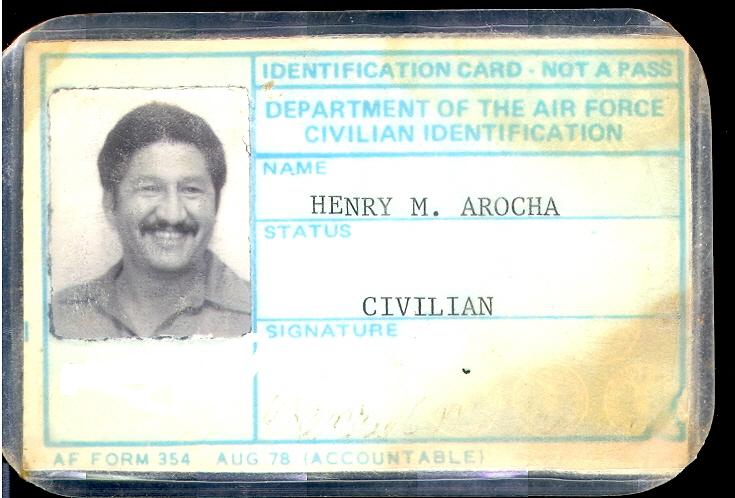
What advice would you give to someone who is in the war right now, in Iraq?
DON'T GO. Stay home, study get a good education, make our own country a better place to live. We need to take care of the United States also, we need to take care of our own backyard, before
we go and stick our nose in someone else's yard. Everytime we turn around, everytime I turn around, there taxing us for this, there taxing us for that, than you here our politicians are so free
with our money, and they keep sending it over seas, to everybody, and our own people here, they keep trying to mess us up as much as possible. We got people here who are poor, we got people
who need operations, we got people living in the streets, and in America, that's just disgraceful to me, that's disgraceful to me.
Is there anything else you would like to add to this interview?
You hear about all these people being called heroes, and good citizens, outstanding citizens, but yet when you ask these good citizens, the outstanding citizens, what does Old Glory mean,
they will never be able to tell you what Old Glory means. You would have to ask somebody who has actually fought for our freedom, to keep Old Glory flying. There are good citizens, and proud
citizens, who have made the ultimate sacrifice for out nation, and for our behalf, those are the heroes. You can go up to any Veteran, and Vietnam Veteran, and they will be able to tell you, those
are the heroes. The one who made the ultimate sacrifice over there.
And if any of you young ladies and gentlemen, ever have any doubt, or have any questions about joining the service, give me a call, and I'll do my darnest to discourage you, from joining...that's it. (Sits back in chair and smiles.)
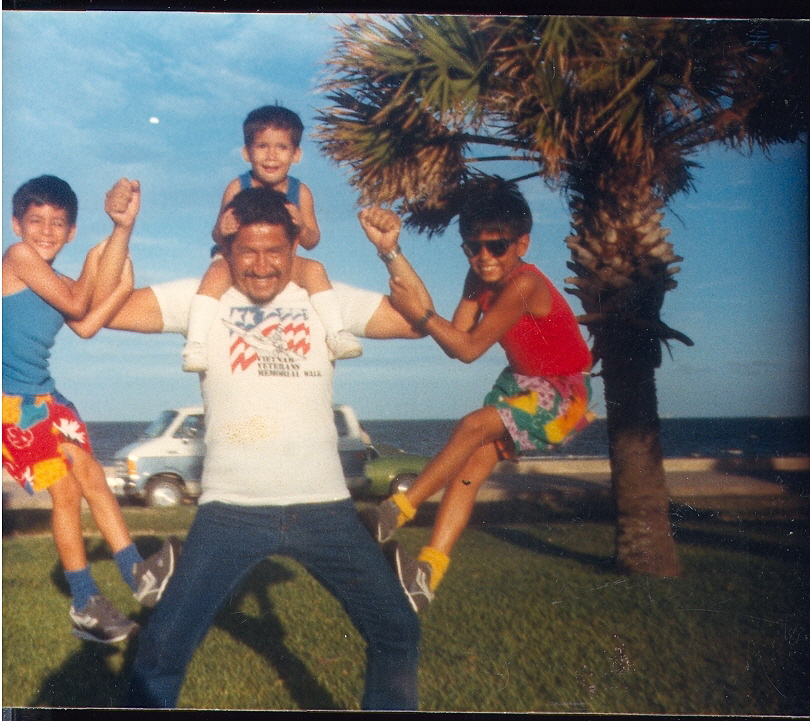
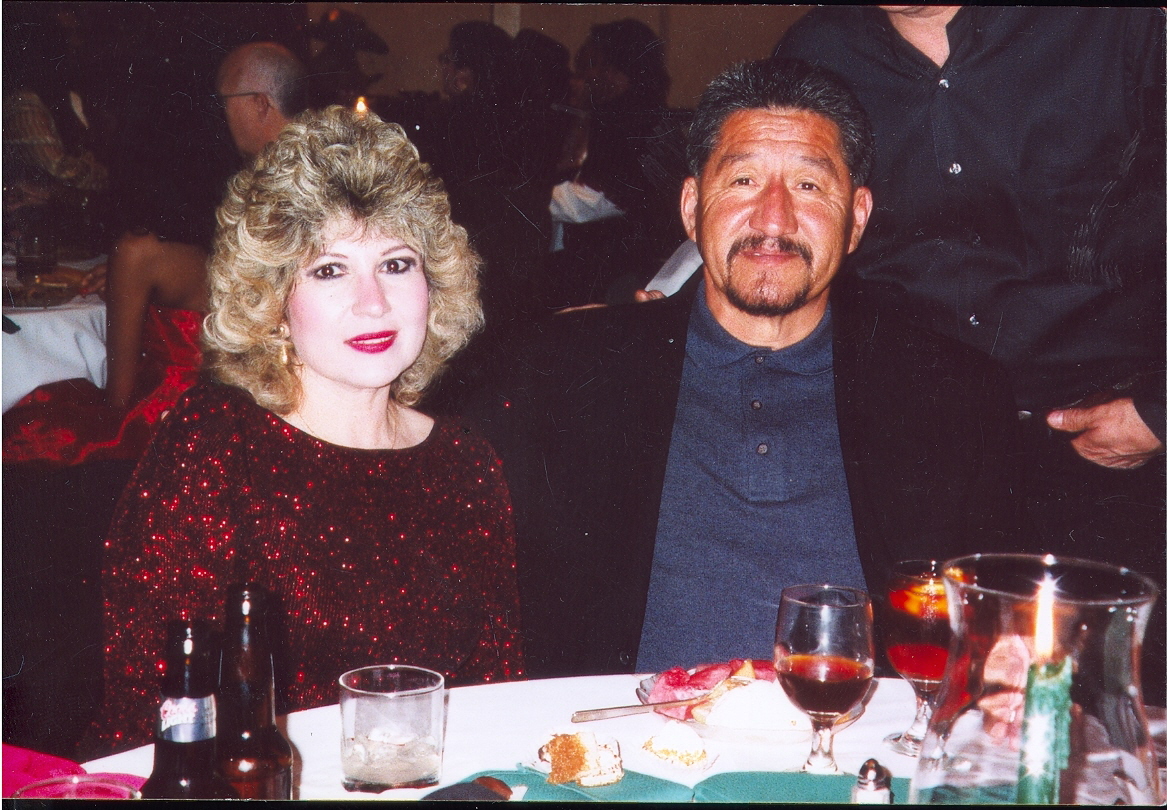
What I learned from my uncle that I did not know before was all of the reaccurring nightmares he has. He told he could still be awake and see the Vietnamese people walking around in his living room. I know now that this is an experience that my uncle will never forget and it is going to be stuck with him for the rest of his life. I am glad that he was able to speak to me about something that will be with him forever. My uncle said everything pretty much straight foward. He was more about getting his point accross and that's all that matters. I'm glad that he is very outspoken because it made me realize not to care about what other people might think of me after I'm speaking what I feel.
The stories that my uncle told me, said that even though not many knew why exactly they were going to Vietnam, they knew that they were going to help our country in time in need. This shows how brave everyone on those men are who went to Vietnam or any war for that matter. Instead of reading about Vietnam in a book, I got to get an actual feel from a Veteran himself on what exactly it was like over there. It was very hard and some of it was difficult to hear but I'm thankful that my uncle made it back and was able to have a family of his own. I feel this is an effective way to learn about the past because your going through with it with someone who was actually there in person. Of course you might not get all of the questions answered 100% but just seeing the expression on there face makes you feel, what they feel.
"Agent Orange."
This homepage contains information on Agent Orange. My uncles has Agent Orange which i
s a disease that he got while he was in Vietnam. http://www1.va.gov/agentorange/ (2006). Reviewed/Updated Date: Dec. 1, 2005.
"Welcome to the GI Bill Website."
This is the GI Bill homepage that contains the basic information reguarding what the GI Bill is and to whom it was given to.
http://www.gibill.va.gov/ (2006). Reviewed/Updated Date: May 10, 2006.
"The Neuropathy Association."
My uncle, along with Agent Orange, was also diagnoised with Neuropathy. This website contains information on what
Neuropathy is and how it is delt with. http://www.neuropathy.org/site/PageServer (2006).
"The Machine Gun."
This is a website that has a picture of the kind of gun used when my uncle heard that the Vietnamese were heading
their way. http://homepage3.nifty.com/sweeper/gun/m_gun/m60.jpg (2006).
"A Light Observation Helicopter."
This is another website that has the type of helicopter my uncle would ride in while going to
different places in Vietnam. http://www.geocities.com/~nam_album/ArmyPage22/Loach.html(2006).
"The Vietnam Veterans Memorial."
This homepage contains information on the memorial wall and also has a spot where you could put in someones information who was in
the Vietnam War and it will tell you what block they were on and if they passed away, it will tell you when they passed away. http://thewall-usa.com/ Copyright 1996-2005.